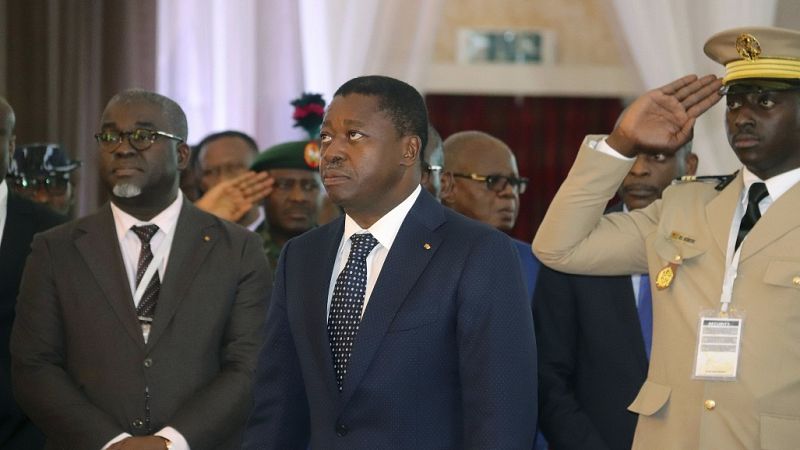Faure Gnassingbé's party triumphs in Togo's senatorial vote

The Union for the Republic, led by President Faure Gnassingbé, secured 34 out of 41 seats in the recent election aimed at transitioning to a parliamentary system.
In Togo, the ruling party claimed 34 of the 41 Senate seats, as announced by the electoral commission on Sunday, February 16, following the vote that marked the final phase of a controversial constitutional reform criticized by the opposition.
"We will promptly submit these provisional results to the Constitutional Court, which is the only authority authorized to issue the final results," stated Dago Yabré, the head of the electoral commission, after the results were revealed in Lomé.
The establishment of the Senate represents the last step before the implementation of the new Constitution, which was enacted in May by President Faure Gnassingbé, who has been in power since 2005, succeeding his father, who ruled for nearly thirty-eight years.
It abolishes the election of the head of state by universal suffrage and establishes a parliamentary system: the role of the president of the Republic will be purely ceremonial, while the actual power will be held by a prime minister who must be the leader of the majority party in the National Assembly.
This prime minister is Faure Gnassingbé, whose party, the Union for the Republic (Unir), won a significant victory in the April legislative elections (securing 108 out of 113 seats) and is expected to be appointed prime minister once the Senate is established.
Both deputies and senators will elect the president of the Republic.
The opposition and civil society criticize this reform, arguing that it allows Faure Gnassingbé to remain in power indefinitely, whereas the previous Constitution limited him to one last term in 2025.
The presidential camp claims that this constitutional change enhances representation.
The Senate will consist of a total of 61 members, with 20 appointed by the prime minister.
In total, 1,527 municipal councilors and 179 regional councilors were set to elect the senators on Saturday.
Some major opposition parties, including the National Alliance for Change, the Democratic Forces for the Republic, and the Dynamic for the Majority of the People (a coalition of political parties and civil society organizations), boycotted the vote.
The Alliance of Democrats for Integral Development, the leading opposition party, participated in the election but only secured one seat.
Six additional seats went to smaller parties.
Foreign media representatives were not granted accreditation to cover these elections, similar to the situation during the legislative and regional elections in April.
Today

